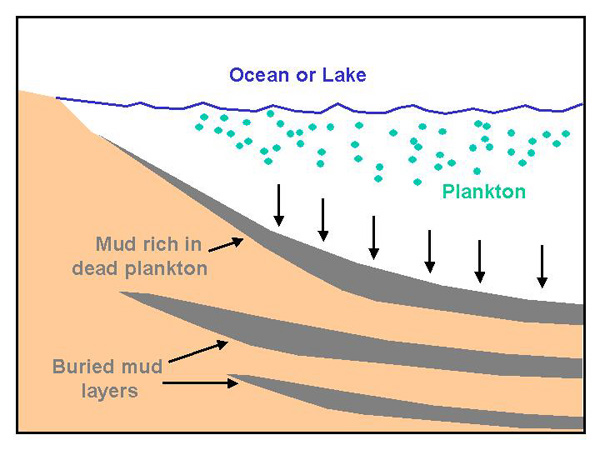- My Forums
- Tiger Rant
- LSU Recruiting
- SEC Rant
- Saints Talk
- Pelicans Talk
- More Sports Board
- Fantasy Sports
- Golf Board
- Soccer Board
- O-T Lounge
- Tech Board
- Home/Garden Board
- Outdoor Board
- Health/Fitness Board
- Movie/TV Board
- Book Board
- Music Board
- Political Talk
- Money Talk
- Fark Board
- Gaming Board
- Travel Board
- Food/Drink Board
- Ticket Exchange
- TD Help Board
Customize My Forums- View All Forums
- Show Left Links
- Topic Sort Options
- Trending Topics
- Recent Topics
- Active Topics
Started By
Message
re: Astrophysicist Dr. Willie Soon explains the abiotic origins of hydrocarbons.
Posted on 1/9/24 at 2:24 pm to GumboPot
Posted on 1/9/24 at 2:24 pm to GumboPot
Not in a position to watch/listen, so apologies if this is covered in the video, but something I only learned a few years ago:
The "fossil" in "fossil fuel" means that it can be found by digging in the earth, and that usage predates our modern usage of "fossil" by a couple hundred years.
The "fossil" in "fossil fuel" means that it can be found by digging in the earth, and that usage predates our modern usage of "fossil" by a couple hundred years.
Posted on 1/9/24 at 2:25 pm to DownshiftAndFloorIt
This will probably be a stupid comment, but how can it be fossils if you are going several miles plus deep into the earth to get it. Where did all the sediment and rock come from
Posted on 1/9/24 at 2:26 pm to crazy4lsu
quote:
But that there is the possibility of abiotic hydrocarbons on other celestial objects doesn't necessarily inform the processes on Earth.
Right. It just suggest that the physical process is possible.
If the abiotic creation of hydrocarbons is being created 50 miles below our feet, 1.) we cannot physically witness it and to 2.) we do not have the materials to physically duplicate the process. The pressures and temperatures are too high.
Posted on 1/9/24 at 2:30 pm to Salmon
quote:
but that the overwhelming majority of our hydrocarbons comes from biological sources.
By "our" I assume you mean earth.
Posted on 1/9/24 at 2:30 pm to iHEARTcorndogs
quote:
This will probably be a stupid comment, but how can it be fossils if you are going several miles plus deep into the earth to get it. Where did all the sediment and rock come from
River basins are a main source of sediment deposition

This post was edited on 1/9/24 at 2:33 pm
Posted on 1/9/24 at 2:31 pm to GumboPot
quote:
By "our" I assume you mean earth.
Yes.
But perhaps elsewhere as well.
Posted on 1/9/24 at 2:32 pm to lsugradman
Thanks for the education on this. I do have a question. My understanding is that the "crude oil" sent to refineries has different grades. For instance I remember a while back that when the gulf refineries stopped getting a higher or sweeter grade crude, from Venezuela I think, that things didn't go as smooth. So my question: is the grade of crude based upon the type of decaying organism or unrelated and due to other sediments entirely?
TIA
TIA
Posted on 1/9/24 at 2:33 pm to GumboPot
quote:
1.) we cannot physically witness it
Why is this important? Or rather, describe for me the process at the molecular level. How can we make the distinction between abiotic versus biotic origins? What would we look for as byproducts?
Posted on 1/9/24 at 2:33 pm to NorCali
sour vs sweet has to do with sulfur content
Posted on 1/9/24 at 2:41 pm to NorCali
quote:
So my question: is the grade of crude based upon the type of decaying organism or unrelated and due to other sediments entirely?
The grade of crude is based on its API number. A high API crude is thin and flows well. A low API is thick and can be thick as tar.
Whether a crude is sweet or sour depends on it's sulfur content. Generally 0.5% sulfur or above is considered sour. It really depends on whether or not a refinery can process the sulfur containing crude or not.
Posted on 1/9/24 at 3:05 pm to hubertcumberdale
quote:
explain what the Cambrian explosion is and why no life existed in the geologic record before this time
There is plenty in the fossil record prior to the Cambrian explosion.
Posted on 1/9/24 at 3:32 pm to crazy4lsu
quote:
Why is this important? Or rather, describe for me the process at the molecular level. How can we make the distinction between abiotic versus biotic origins? What would we look for as byproducts?
Valid questions I do not have an answer to.
But I would start with a nuclear process rather than a chemical process to form elemental carbon and hydrogen to form hydrocarbons, (the simplest being methane).
...I just googled it and Sabatier chemical reaction is abiotic:
CO2 + 4H2 -----> CH4 + 2H20
Takes 400 degrees C and about 450 psig.
This post was edited on 1/9/24 at 3:35 pm
Posted on 1/9/24 at 3:35 pm to GumboPot
It’s worth discussion but carbon (hydrocarbons) are present throughout the universe. It doesn’t mean that it has to come from an organic source like dinosaurs and plants. I mean how did the dinosaurs and plants get it to begin with?
We are all small parts of the universe. The matter that we are made of will eventually return there.
We are all small parts of the universe. The matter that we are made of will eventually return there.
Posted on 1/9/24 at 4:12 pm to lsugradman
quote:
Man i just learned today that scientists have been to Saturn and found oil.
Daniel Plainview finna drink that milkshake.
Posted on 1/9/24 at 4:15 pm to GumboPot
So you're telling me there's such a thing as space dinos?
The next Jurrasic Park movie is gonna be lit.
The next Jurrasic Park movie is gonna be lit.
Popular
Back to top


 0
0










